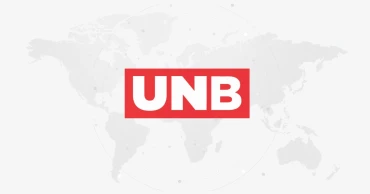ADB loan to Bangladesh
Economic recovery: ADB approves $250m loan for Bangladesh
The Asian Development Bank (ADB) Friday approved a $250 million policy-based loan to support Bangladesh's economic recovery following the Covid-19 pandemic.
This is the first subprogramme of the programmatic $500 million Sustainable Economic Recovery Programme.
The objective of the Sustainable Economic Recovery Programme is to facilitate rapid and sustainable recovery from the pandemic, generate employment, and expand economic activities for micro-entrepreneurs and small businesses.
This will be pursued through policy reforms that will create fiscal space to enhance public expenditure and support the recovery and growth of cottage, micro, small, and medium-sized enterprises (CMSMEs).
The loan will support the government's planned public investment in education, health, social protection, and infrastructure and help to stimulate economic activities and economic recovery. It is also aligned with the core objectives of the country's Eighth Five-Year Plan and supports the aspiration of Bangladesh to become an upper-middle-income country by 2031.
Read: ADB unveils new partnership strategy for Bangladesh
"The fiscal space created under the programme will allow the government to prioritise expenditures and upscale investment in social and economic infrastructure," said ADB Principal Financial Management Specialist Srinivasan Janardanam. "The programme is expected to increase the efficiency in public investment management and create a favourable environment for access to credit, particularly for the poor and vulnerable."
4 years ago
ADB approves $250 million loan to Dhaka to finance reforms
The Asian Development Bank (ADB) on Friday approved a $250 million policy-based loan to Bangladesh to help finance reforms.
It is aimed at improving the inclusiveness and responsiveness of the country’s social development and resilience program, according to a release from ADB.
Bangladesh has made remarkable progress in reducing poverty over the past 2 decades. The poverty incidence declined from 48.9% in 2000 to 20.5% in 2019.
However, while many people were lifted from extreme poverty, a considerable number continue to live at a subsistence level.
Also read: Climate Change to get priority in Bangladesh alongside Covid support:ADB
The coronavirus disease (COVID-19) pandemic has significantly affected the socioeconomic situation of Bangladesh with the decline of the country’s gross domestic product to an estimated 5.2 % in fiscal year (FY) 2020 from 8.2% in FY 2019.
“Enhancing social protection support is critical to cushioning the effects of the pandemic,” said ADB Senior Social Sector Specialist for South Asia Hiroko Uchimura-Shiroishi.
He said that the ADB supports the government’s intention to leverage the COVID-19 pandemic as an opportunity to strengthen its social protection programs as an essential means of building the resilience of the poor and supporting an inclusive recovery.
Also read: Covid fallout: ADB lowers Bangladesh's FY21 growth forecast
According to the release, the Strengthening Social Resilience Program will include institutional and policy reforms to address cross-sector issues of social development in Bangladesh.
These include improving the coverage and efficiency of the social protection system through improving the administrative efficiency of social protection management.
The program will expand its outreach to vulnerable women by increasing the coverage of both the old age allowance for women over 62 and the allowance for widowed, deserted, and destitute women in 150 sub-district units or upazilas.
Also read: Post-pandemic recovery in Bangladesh: ADB to accelerate project implementation
Other reforms include promoting the use of mobile financial services and simplifying identification and documentation requirements for opening a bank account and broadening the scope of social protection from mere poverty relief to life cycle social and health responses, including social insurance system.
ADB will also provide a technical assistance grant to support program implementation, policy analyses, and capacity development for social development-related ministries. The technical assistance is estimated to cost $1.2 million which will be financed on a grant basis by the Japan Fund for Poverty Reduction.
4 years ago
.jpg)

